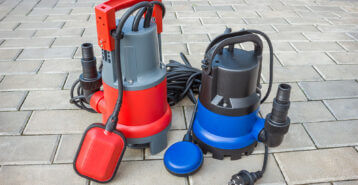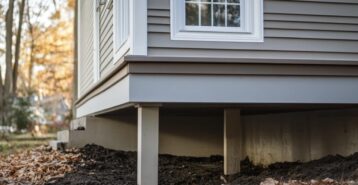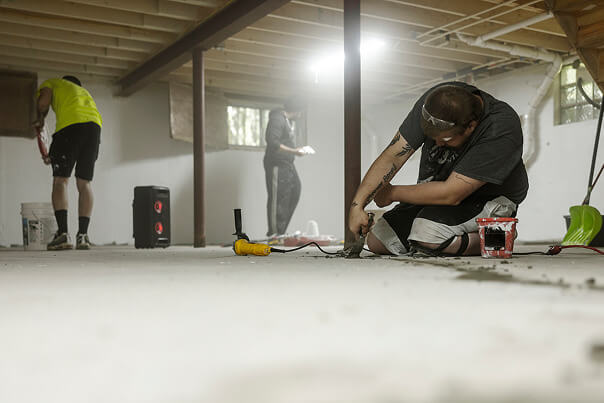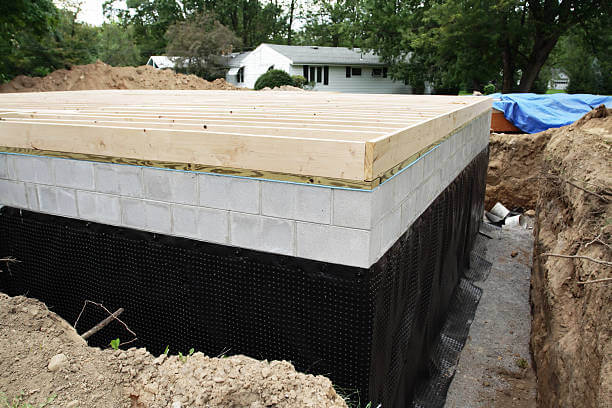Signs You Need Basement Waterproofing
A damp or musty basement isn’t just an inconvenience; it’s often an early warning sign of foundation or moisture problems. Water intrusion can lead to structural damage, mold growth, and expensive repairs if left unchecked.
This guide explains the most common signs that your basement may need waterproofing and what to do next to protect your home.
1. Musty Odors or Stale Air
A lingering musty smell is often the first clue that your basement has a moisture problem. These odors come from mold and mildew thriving in damp, poorly ventilated areas.
Why It Matters:
- Persistent odors usually mean hidden moisture in walls or flooring.
- Mold and mildew spores can cause respiratory irritation and allergic reactions.
2. Visible Mold or Mildew
Mold on basement walls, floors, or stored items means humidity or water intrusion is present. It can appear black, green, white, or gray, and often spreads quickly in dark corners or behind insulation.
Why It Matters:
- Mold damages both your home’s structure and your belongings.
- It can worsen asthma and allergy symptoms if left untreated.
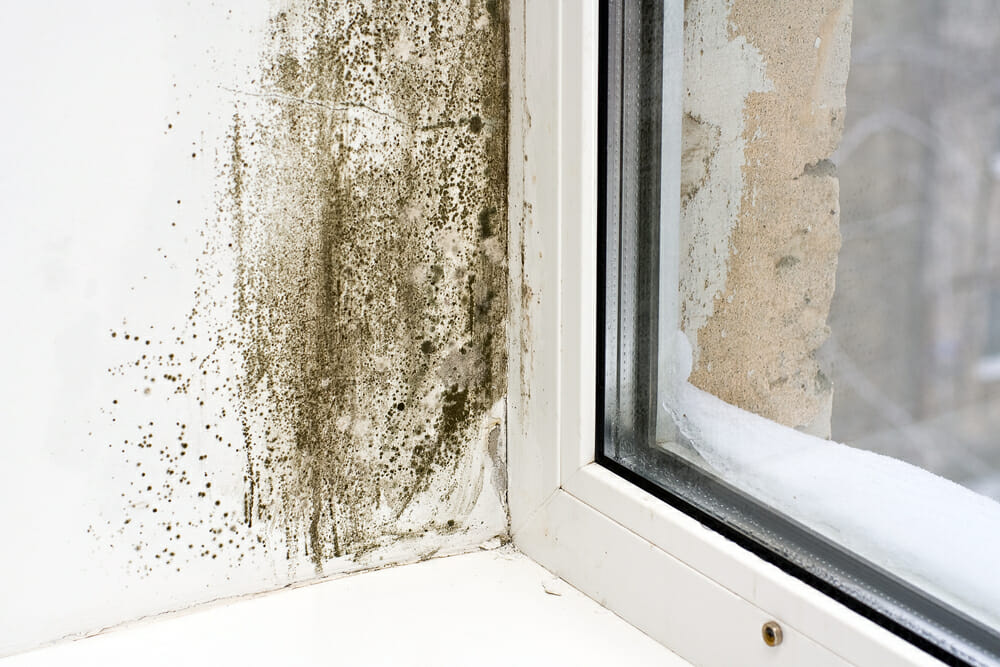
3. Water Stains or Discoloration
Dark or yellowish stains on concrete walls or floors signal that water has entered through cracks or porous surfaces. You may also see rings or tide marks after heavy rain.
Why It Matters:
- Indicates recurring seepage that weakens your foundation over time.
- Can lead to wall crumbling, paint peeling, or floor warping.
4. Efflorescence (White Powder on Walls)
Efflorescence is a chalky white residue left behind when moisture seeps through masonry and evaporates, leaving salt deposits behind.
Why It Matters:
- Shows that water is penetrating basement walls.
- Continuous seepage can erode mortar and lead to cracks or bowing.
5. Cracks in Walls or Floors
Hairline cracks might seem harmless, but they can expand as groundwater pressure builds up around your foundation. Vertical, horizontal, or stair-step cracks all allow water to enter.
Why It Matters:
- Small cracks can widen and become major entry points for water.
- Foundation shifts caused by moisture can lead to structural instability.
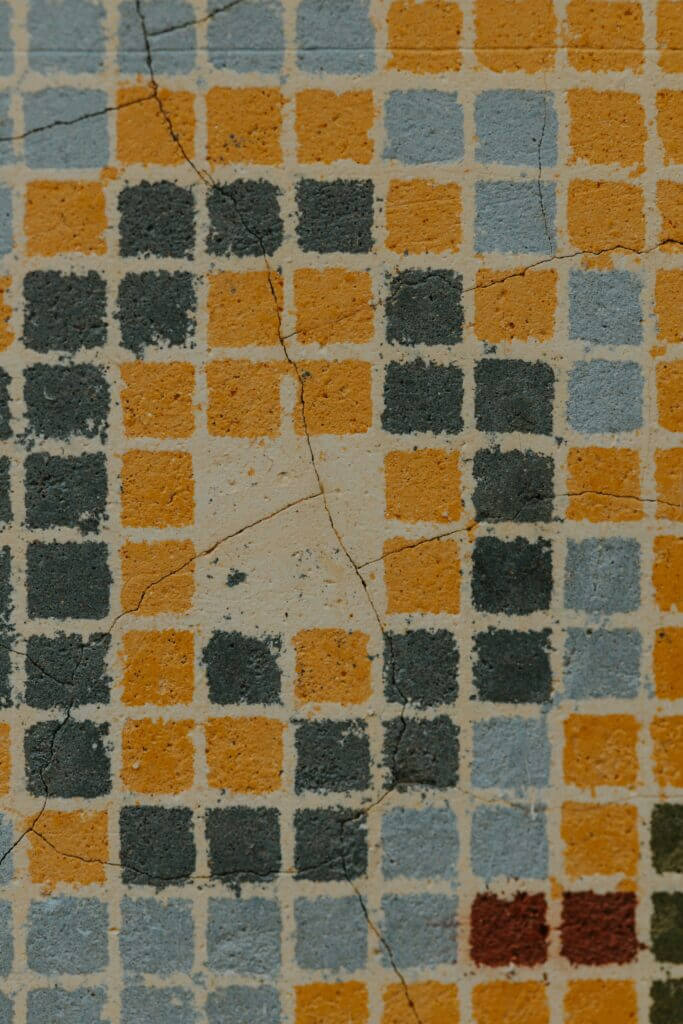
6. Damp or Wet Walls and Floors
If walls feel cold or damp to the touch, or if puddles form after heavy rain, water is likely seeping in from outside or through a high water table.
Why It Matters:
- Persistent dampness creates the perfect environment for mold and wood rot.
- Reduces indoor comfort and lowers air quality throughout your home.
7. Peeling Paint or Wallpaper
Paint or wallpaper bubbling, peeling, or flaking in the basement usually means moisture is trapped behind the wall surface.
Why It Matters:
- Hides larger water issues behind finished walls.
- Leads to long-term material damage and expensive restoration.
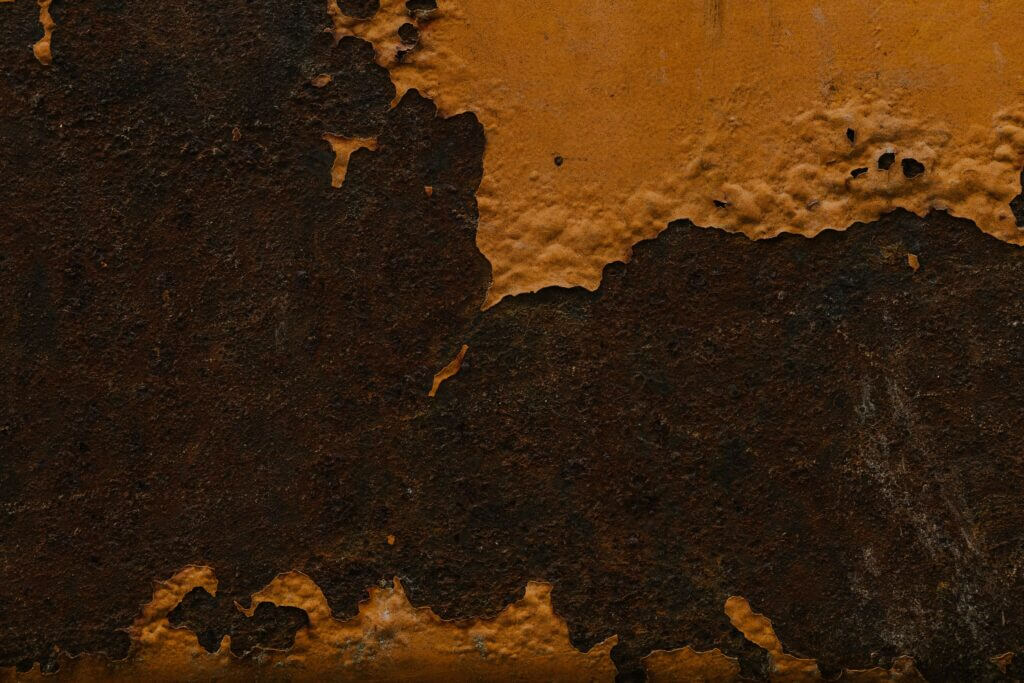
8. Rust on Appliances or Metal Fixtures
Rust on water heaters, furnaces, or storage racks is a telltale sign of excessive humidity. Even without visible leaks, it means your basement air contains too much moisture.
Why It Matters:
- Shortens the lifespan of metal appliances and fixtures.
- Indicates high humidity that can promote mold growth elsewhere.
Why Basement Waterproofing Matters
Basement waterproofing keeps your home’s foundation dry and stable by preventing water from seeping through walls, floors, and cracks. Early detection can help you avoid:
- Costly structural damage
- Mold and mildew growth
- Poor indoor air quality
- Reduced property value
If you’ve noticed moisture, odors, or cracks in your basement, it’s time to investigate before small problems become major ones.
When to Call a Waterproofing Professional
If you’ve spotted one or more of these warning signs, don’t wait for the problem to escalate. Early waterproofing solutions, like installing drainage systems, sump pumps, or vapor barriers, can prevent costly foundation repairs later on.
Take Action to Protect Your Home:
- Schedule a professional basement inspection.
- Get multiple quotes for waterproofing solutions.
- Invest in long-term protection before damage spreads.
Protect Your Basement for the Long Run
Catching moisture problems early is the best way to avoid serious damage. Professional basement waterproofing keeps your foundation strong, your air clean, and your living space dry.
If you’ve noticed musty odors, damp walls, or cracks, it’s time to take action. A licensed waterproofing expert can help identify the source and recommend the right solution for your home.
Compare top-rated foundations pros in your area.
Read real homeowner reviews, explore qualifications, and view promotions. Modernize makes it easy to browse professionals and find one that will be perfect for your project.




